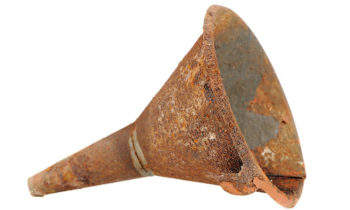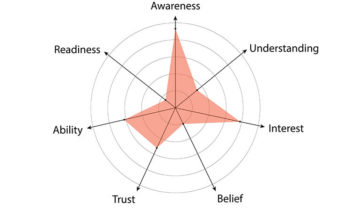Interviewing as a Gift

Driving cross-country creates space and time for conversation and reflection.
My daughter is twenty-two and just graduated from college. I helped her move from Atlanta to DC, settling her in before she started her first job. U-haul trailer in tow, we had plenty of time during the ten-hour drive to talk in the car.
Somewhere around Greenville, South Carolina, she asked me about networking. She said her mentors told her to cultivate a network in her new job, that it would be key to her success in DC, but added, “Sometimes it feels awkward to chat at a cocktail party with people you don’t know about more professional topics that aren’t ‘social.’”
“Ask questions,” I said. “Everyone likes to be asked questions.”
She looked puzzled.
“Ask them about their job. Get them to open up. What do you do? Oh, the EPA, what role do you play there? What are the three biggest challenges facing the agency right now? What are the competing schools of thought on how to best respond? What are other countries doing? Is there something to be learned from their experience?”
This is a variation on the idea that strong understanding comes from asking five whys and is a key part of servant leadership).
“You’re weird. It sounds like you are interrogating them.”
“I’m telling you — a funny thing happens when you ask questions about people. They think you’re smart — and they enjoy the conversation.”
You might think people like being interviewed because they like to hear themselves talk — that it’s vanity, a shiny mirror we put in front of people that lets them admire themselves. I disagree. I think thoughtful questions are an invitation to create new understanding.
Look at the cocktail conversation again.
“What do you do?”
We get this question a dozen times in a week and most of the time, we answer back with a canned response.
“I work for the EPA.”
The canned response is a challenge, really. Having just told you what I do, I’m asking, “Are you really interested in that question or was that just polite chit-chat” The ball having been volleyed back, you have two choices. You can talk about the Knicks or you can say, “What role do you play there?” You can choose to go deeper. Go down that path and you are signaling you have more than a passing interest in the subject. You are saying, “I’m listening. I’m interested. Here’s a platform. I invite you to speak more on something about which you know quite a lot.”
Most people don’t get that invitation very often. Their spouses don’t ask. It doesn’t come up at the swim club. Their children don’t dig in on any given evening.
In I and Thou, Martin Buber writes,
Man wishes to be confirmed in his being by man, and wishes to have a presence in the being of the other. Secretly and bashfully he watches for a YES which allows him to be and which can come to him only from one human person to another.
When we honor those with whom we are in a relationship — treating them as a gift and not as objects — we invite the best in them to surface.
Most of us are busy rowing through life like conscripts in the Carthaginian navy. It’s rare we are invited to the foredeck and asked our opinion on the shape of the world. Not only is it a compliment to be asked, but more importantly, it is an invitation to think on a new, higher level. When we are asked good questions, we say things that surprise us. That’s because the question causes synapses to connect with each other in new ways. In speaking, we are engaging in the creation of new insights.
Asking great questions gives those with whom you are speaking the high gift of insight, perhaps verbalized for the first time. You are saying to them, “You work all day in a specific world. That gives you a unique and informed perspective that is valuable. What is it? Share with me your wisdom.”




